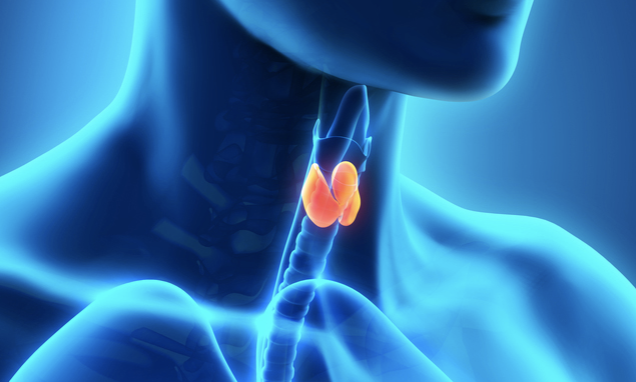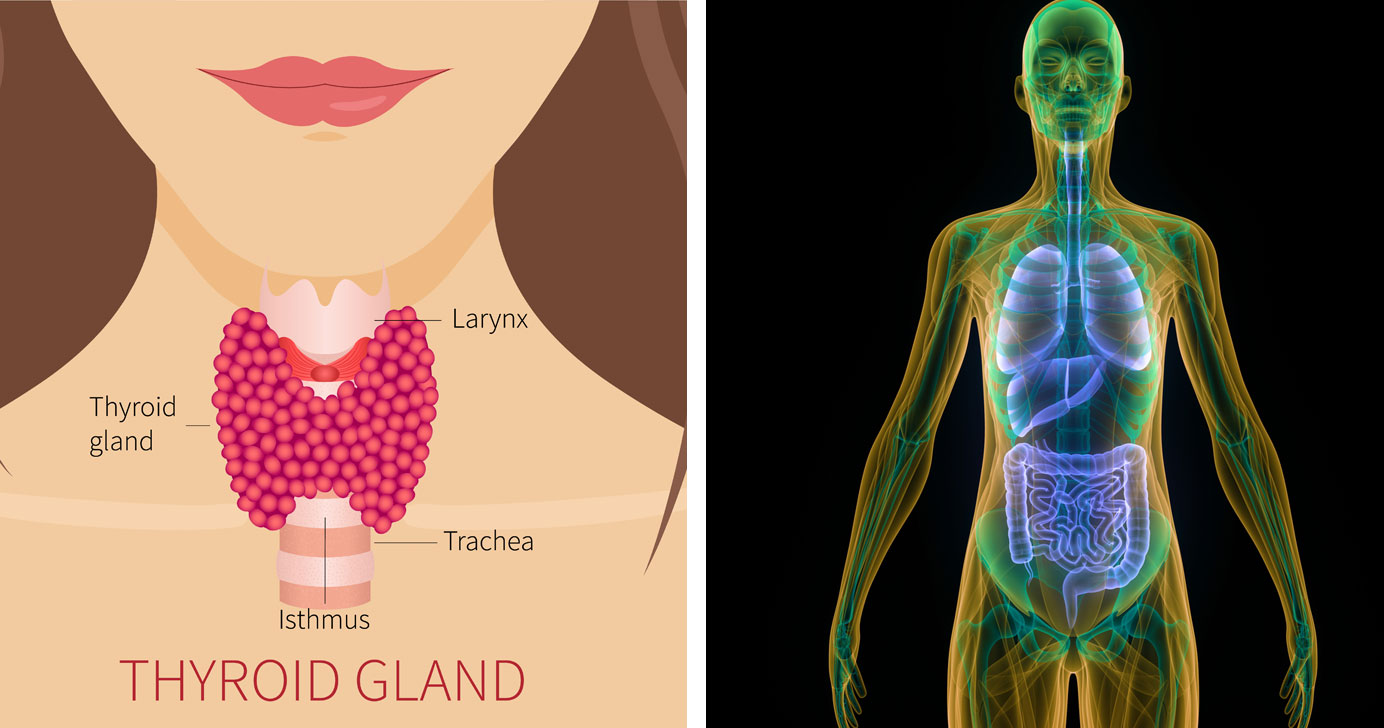15 Million Americans Are Undiagnosed For Thyroid Disorders. These Are The Symptoms You Can’t Ignore!

image via – shutterstock.com
People worry about various aspects of their health, such as the functioning of their heart, lungs and brain, but seem not to focus on the health of their thyroid. Despite this lack of attention to the thyroid, it’s impact on one’s overall health is significant. The video you are about to watch below importantly looks at the symptoms of an underactive thyroid and the best medical treatment for restoring proper functioning.
The thyroid, according to the Mayo Clinic, is a butterfly-shaped gland located in the lower throat area. It’s production of two hormones, Triiodothyronine and thyroxine, are critical in the body’s ability in regulating many aspects of the body; carbohydrate usage, body temperature, and heart rate.
The failure of the gland to produce these hormones, known as Hypothyroidism, can be a result of side effects from pregnancy, certain medications as well as radiation therapy. Possible SYMPTOMS of Hypothyroidism include: Fatigue, Constipation, Sensitivity to Cold, Weight Gain, Depression, Muscle Aches, Thinning Hair, Joint Pain, Impaired Memory and Dry Skin.
Obviously many of us experience some of these symptoms, and don’t necessarily have a slow thyroid. However, if you do experience a combination of some of these symptoms over a prolonged period of time, do not ignore them! As you will hear in the upcoming video, seeing a physician to test whether your thyroid is responsible for what you are experiencing is critical.
Re-establishing a problem hormone balance with medication is the key to restoring your health and well-being. While homeopathic remedies are available, they should be used in conjunction with synthetic hormone replacement, for optimal results.
Please SHARE This With Your Family and Friends
13 Signs and Symptoms You Have a Thyroid Condition and May Not Even Know It.
Without a properly functioning thyroid gland, living a healthy, normal, balanced life is all but impossible to enjoy. That is because the gland, located in the front base of our necks, is responsible for producing all of the hormones our bodies need to function. These hormones help control metabolism and are what our other vital organs rely on for energy in order to work efficiently and properly.
It naturally follows that thyroid hormones can have a huge impact on how different parts of the body work, including the heart, liver, muscles, brain, and more. When the thyroid gland is under-active and does not produce enough thyroid hormone, it leads to a disorder known as hypothyroidism. The most common causes of an under-active thyroid are a lack of sufficient iodine in one’s diet, an underlying autoimmune disease, such as Hashimoto’s, and radiation treatment.
In terms of iodine deficiency, a change in diet can help ensure that you are getting enough. The human body does not make its own supply of iodine and so eating foods that are naturally rich in iodine, such as organic yogurt, cranberries, navy beans, strawberries, potatoes, cheddar or cheese made with goat’s milk, can help thyroid function. Thankfully there is an easy way to diagnose hypothyroidism, via a blood test, and from there it can be managed and treated with hormone therapy.
If left untreated, hypothyroidism can lead to a variety of different health issues. Joint pain, obesity, heart disease, infertility, depression, and even coma can result from the condition. By knowing what symptoms to look out for you can avoid those complications and get treatment before it spirals out of control. Here are the most common signs of hypothyroidism:
1. Sudden and unexplained weight gain 2. Muscle weakness 3. General fatigue 4. Constipation 5. Memory loss 6. Thinning, coarse, or dry hair 7. Rough, dry, pale skin 8. Puffy face 9. Sensitivity and/or intolerance to cold 10. Depression 11. Increased irritability 12. Muscle aches and cramps 13. Abnormal menstrual cycle with heavier or irregular periods in women
Check out the video below for more information:
Please SHARE This Information With Family and Friends





